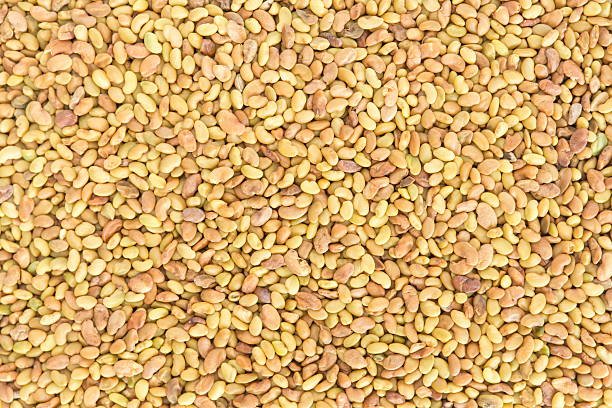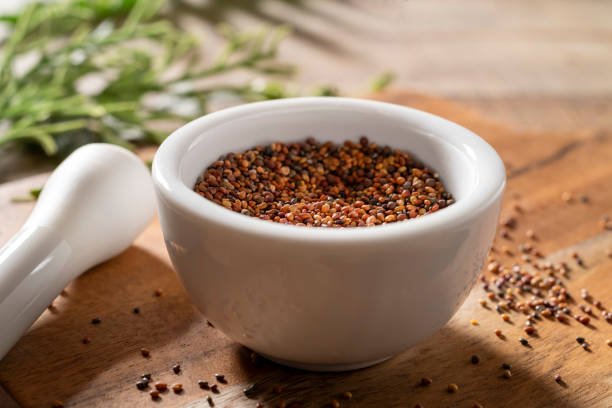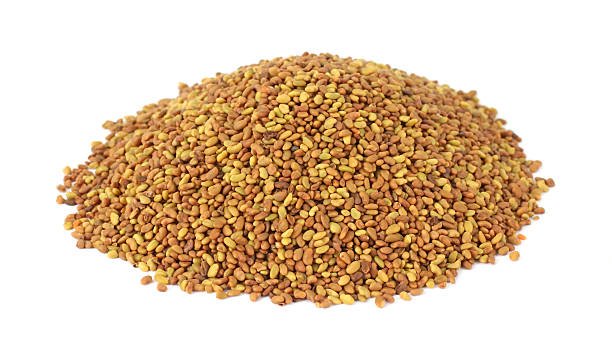Alfalfa Seeds
Name
Arabic: بذور البرسيم البلدي (Buzoor Al-Barseem Al-Baladi)
English: Alfalfa seeds
Botanical Description
Alfalfa seeds come from the alfalfa plant (scientific name: Medicago sativa), a perennial plant belonging to the legume family (Fabaceae). The plant is characterized by trifoliate leaves and small purple or blue flowers. The plant can reach a height of about 1 meter. Alfalfa is widely used as animal fodder, but its seeds are also used for medicinal and dietary purposes.
Types
Medicago sativa: The common type of alfalfa.
Medicago falcata: Known as “yellow alfalfa” and also used in agriculture.
Nutrient-Rich: Contains vitamins A, C, E, K, and minerals like calcium and iron.
Improving Digestion: Helps promote digestive health.
Antioxidant Properties: Contains compounds that help fight free radicals.
Boosting Immunity: Due to its high vitamin C content.
Supporting Heart Health: Helps reduce cholesterol and regulate blood pressure.
Medical Uses
Treating Anemia: Due to its high iron content.
Blood Purification: Used to detoxify the blood.
Anti-inflammatory: Helps reduce inflammation in the body.
Enhancing Bone Health: Due to its high calcium and vitamin K content.
Cultivation Methods
Soil: Prefers fertile, well-drained soil.
Climate: Grows best in temperate climates.
Irrigation: Requires regular watering to maintain soil moisture.
Planting Season: Planted in spring or fall.
Part Used as Medicine
Seeds: Used for some medicinal purposes.
Leaves: The main part used for nutrition and treatments.
Active Components
Vitamins: A, C, E, K.
Minerals: Calcium, iron, magnesium.
Antioxidants: Such as flavonoids and carotenoids.
Dietary Fiber: Promotes digestive health.
Export Details Worldwide
Weight: 20 or 25 kilograms
Packaging: Automated
Packaging Type: Bags
Container: 20 feet
Origin: Egypt






